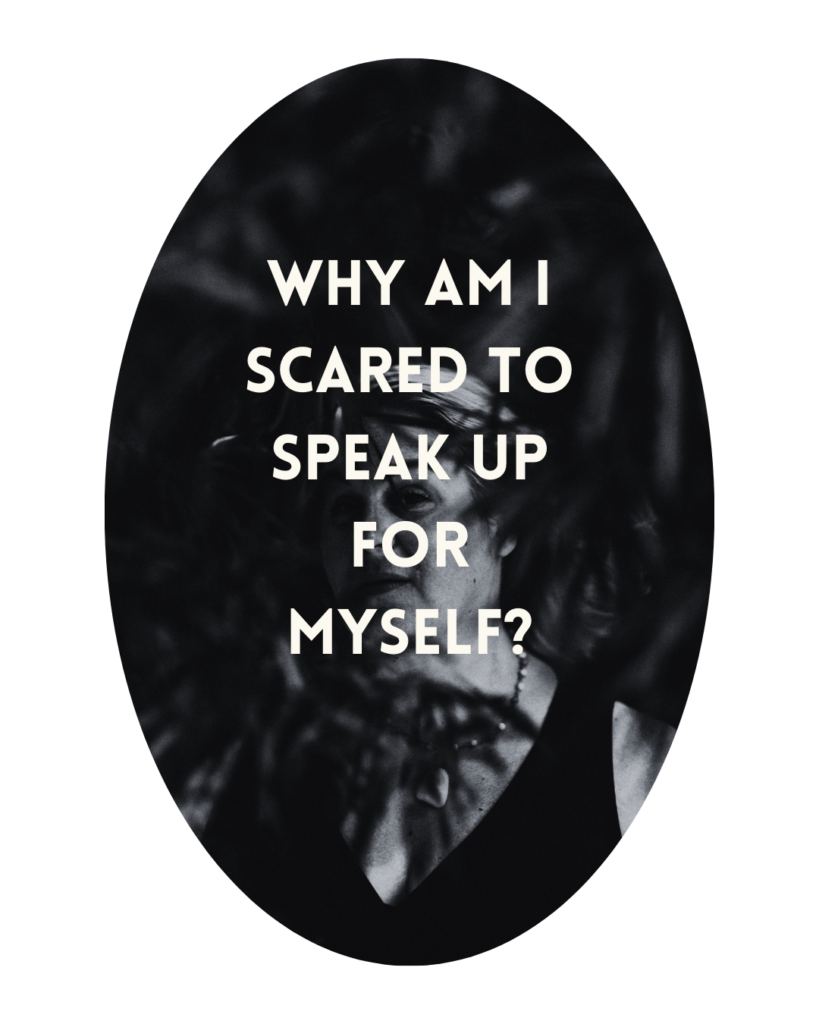© - Content and images in this blog are copyright Elise Besler of EB Voice Empowerment, unless stated otherwise. Feel free to repost or share images for non-commercial purpose, but please make sure to link back to this website and its original post.
℗ - We do not store any information about your visit to our website other than for analytics and optimization for content and reading experience through the use of cookies.
℅ - Our site does at times contain paid advertisements, sponsored content, and/or affiliate links.
Reader Etiquette
I'm your go-to expert for helping to ditch the fear and own your voice. Whether you’re speaking, singing, or setting boundaries, I help you go beyond technique -rewiring your nervous system so full expression feels natural, effortless, and so you.
Hi! I'm Elise Besler - Voice Coach & Somatic practitioner
February 24, 2025

The Fear of Speaking Up: It’s Not Just in Your Head
If you’ve ever struggled to speak up for yourself, whether in relationships, at work, or in everyday situations, you might have blamed yourself for being too shy, too sensitive, or too weak. But here’s the truth: your fear of speaking up isn’t a personal failing ~ it’s a nervous system response.
Your body has been conditioned to associate speaking up with risk, and that fear is wired into your system for protection, not failure. So instead of beating yourself up for struggling, let’s explore what’s actually happening inside your body when the fear of speaking up takes over.
The Science Behind the Fear: Your Nervous System and Speaking Up
Your nervous system is designed to detect safety or danger at all times. When you consider speaking up for yourself—especially in situations where conflict, rejection, or criticism could occur—your nervous system may interpret it as a threat.
 The Survival Responses That Keep You Silent
The Survival Responses That Keep You Silent
Your body has four main responses to perceived threats, all of which can show up when you try to use your voice:
- Fight: You might feel the urge to argue, get defensive, or push back aggressively.
- Flight: You avoid the conversation altogether, leaving the room or ghosting messages.
- Freeze: Your mind goes blank, your throat tightens, and you physically can’t get the words out.
- Fawn: You people-please, over-apologize, or downplay your needs to keep the peace.
If you resonate with freezing or fawning, that’s a nervous system response trying to protect you from potential harm. Your body learned somewhere along the way that speaking up wasn’t safe.
Why Does Speaking Up Feel Unsafe?
Fear of speaking up often comes from past experiences where using your voice led to pain, conflict, or disconnection. These experiences can include:
 1. Childhood Conditioning
1. Childhood Conditioning
- Being taught that “good” children are quiet and obedient.
- Getting dismissed, shamed, or punished for expressing emotions.
- Learning that conflict leads to withdrawal of love, anger, or punishment.
 2. Past Trauma and Emotional Wounds
2. Past Trauma and Emotional Wounds
- Being bullied, criticized, or ridiculed when trying to speak up.
- Experiencing emotional neglect where your needs were ignored.
- Facing power imbalances where speaking up had real consequences.
 3. Cultural & Social Conditioning
3. Cultural & Social Conditioning
- Growing up in an environment where silence was survival.
- Internalized gender roles that discourage assertiveness.
- Workplace dynamics that favor compliance over self-advocacy.
Your brain and body remember these experiences, so when you even think about speaking up, your nervous system says, “Wait! This isn’t safe!” and activates a protective response before you can even process it logically.
How to Work With Your Nervous System to Speak Up With Confidence
 Step 1: Regulate Your Nervous System Before You Speak
Step 1: Regulate Your Nervous System Before You Speak
If speaking up triggers freeze or fawn, focus on sending safety signals to your body first.



 Step 2: Practice Low-Stakes Speaking Up
Step 2: Practice Low-Stakes Speaking Up
Start small. If asserting yourself in big conversations feels overwhelming, practice in safer spaces first.



This teaches your nervous system that using your voice doesn’t always lead to harm.
 Step 3: Redefine What Speaking Up Means
Step 3: Redefine What Speaking Up Means
If past experiences made you believe that speaking up = conflict, rejection, or harm, it’s time to reframe that belief.



Your voice is yours to use. You don’t have to justify your existence.
Final Thoughts: Your Voice Deserves to Be Heard
If you’re scared to speak up, it’s not because you’re weak—it’s because your nervous system has learned to protect you this way. And that means you can unlearn it, too.
Reclaiming your voice isn’t about forcing yourself to be fearless—it’s about creating safety in your body first so that your voice can flow naturally.
You are not too much. You are not asking for too much. Your voice matters.
If this resonated with you, what’s one small way you can practice using your voice today? Let me know in the comments!
— If you’ve ever struggled to speak up, felt your voice shake in high-stakes moments, or questioned if your words truly mattered, this practice is for you! —
Click HERE for immediate access to the FREE “Find Your Voice” Guided Audio Training.
Take 11 minutes to activate the power of your voice with this guided practice. Includes: Grounding, breath-work and voice-work exercises to help you regulate your nervous system and build a confident voice.

Leave a Reply Cancel reply
Grab
THE "Find YOUR VOICE" AUDIO TRAINING
Welcome, Friend! Around here, we believe that embodiment is sacred, and that every voice deserves to take up space.
This is a space rooted in anti-racism, body liberation, queer-affirming practices, and a commitment to trauma-aware, nervous system-informed growth.